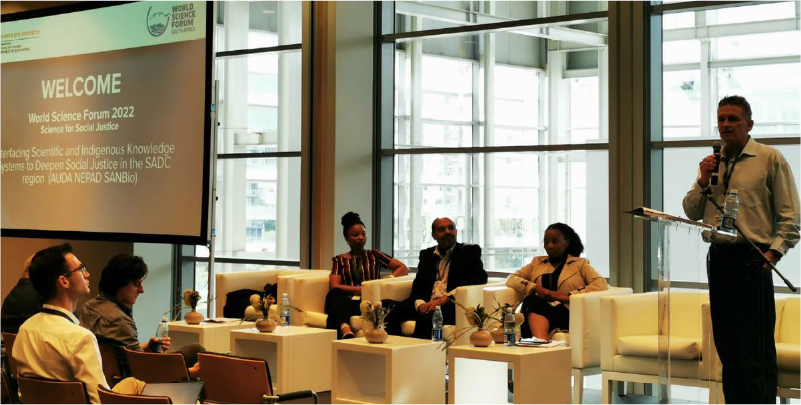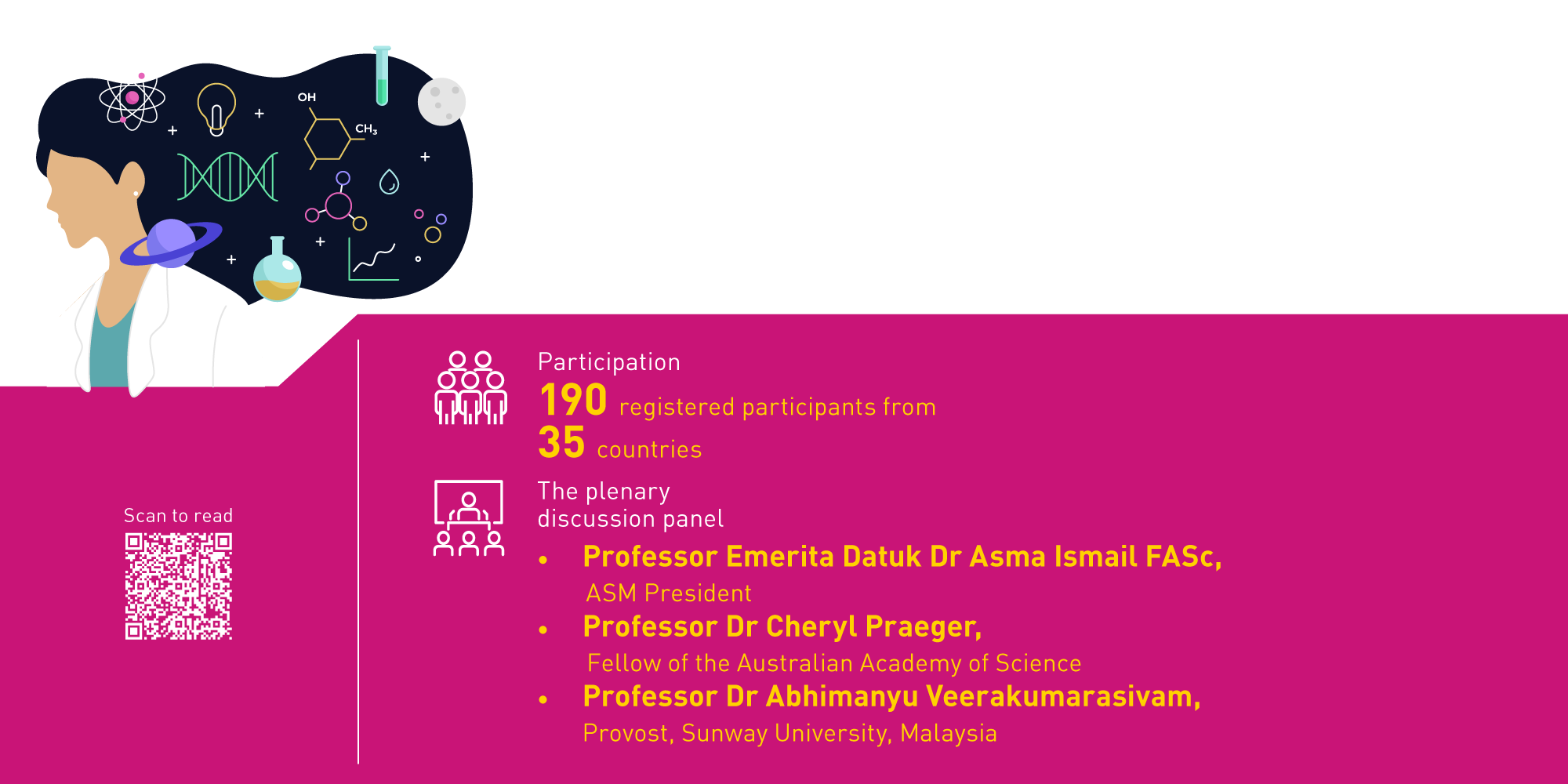
World Science Forum (WSF) & Global Knowledge Dialogue
April 28, 2023ASM co-hosted a virtual think-tank series on the Impact of COVID-19 on women in the STEM workforce (Asia-Pacific) on 27 October 2022 based on the report produced by the Australian Academy of Science.
The report captures the lived experiences of women and highlights that important gains in equality may be lost without action. It also presents key findings on the impacts on STEM careers, individual well-being and the ways organisations and individuals within the STEM ecosystem could respond to rising challenges brought about by COVID-19. This collaborative research project revealed the COVID-19 pandemic has exacerbated pre-existing gender inequity in the STEM workforce across the Asia-Pacific region.
-
This has been brought about by changes in lifestyle and the blurring of boundaries between the spheres of work and home, increased domestic and caring responsibilities which have impeded work productivity, precarious and insecure work arrangements, and reduced access to research facilities and workplaces due to lockdown arrangements.
-
These conditions have had significant impact on individual well-being, as women in STEM respond to social change and balance cultural and familial expectations.
-
People from different parts of the Asia-Pacific region shared different perspectives of capacity in their economy to respond to these negative impacts. Regional collaboration, together with supportive workplaces and communities, can minimise gendered impacts of the pandemic on the STEM workforce, now and in the post-pandemic recovery.
The engagement aimed to explore the responses on COVID-19’s impact on women in the STEM workforce in the regional and local context. These workshops presented an ideal opportunity to introduce the STEM Women Global Network initiative, which is due to be launched by AAS in 2023, which will provide a platform for women working in STEM to network, connect, and collaborate as one of the recommendations from the report.
It also presents key findings on the impacts on STEM careers, individual well-being and the ways organisations and individuals within the STEM ecosystem could respond to rising challenges brought about by COVID-19. Four common themes emerged from the evidence, revealing an interwoven context that women in the STEM workforce were facing. The themes were:
-
Impacts on professionals at work
-
Challenged boundaries between work and non-work spheres
-
Social change and individual well-being
-
Impacts in Asia-Pacific and beyond
Recommendations
To support professionals at work
- Impacts on professionals at work
- Challenged boundaries between work and non-work spheres
- Social change and individual well-being
- Impacts in Asia-Pacific and beyond.
To manage challenged boundaries
- Deepen understanding and awareness of the impact of increased online engagement on work and personal lives.
- Ensure digital accessibility and support is available to all.
- Involve people across an organisation’s hierarchy in making decisions about positive and equitable changes to workplace culture and conditions.
- Normalise flexible work practices by making them available to all genders.
- Provide accessible and affordable quality childcare and early learning support.
- Provide adequate paid parental leave, for all parents, regardless of gender.
- Support the development of new skills and capability in online teaching and collaboration.
To support individual well-being during social change
- Acknowledge that individual health and well-being are priorities and there is a need for support.
- Ensure access to mental health support and actively seek to understand the gaps.
- Take flexible approaches to better respond to individual circumstances and support their mental health.
- Explore and develop collaborative work possibilities to build networks to reduce isolation.
- Establish and support professional social networks.
- Offer flexibility and extension where possible for grant applications and research deliverables within grants, that recognise the specific impact of the pandemic on women in STEM.
Across Asia-Pacific and beyond
- Drive ongoing commitment and action to advance the APEC Women in STEM Principles and Actions.
- Recommit as economies and communities to the UN Beijing Declaration 1995 and SDGs and track progress on gender equity aspired to in these frameworks.
- Create opportunities to share best practice among economies in the region, including consideration of the ISC’s initiative to address the gender gap in science and mathematics.
- Leverage existing domestic strategies that address gender equity in STEM and use them as a blueprint to extend their reach throughout the region.
ASM will continue to collaborate and champion women in science related initiatives and partnerships locally and internationally.

